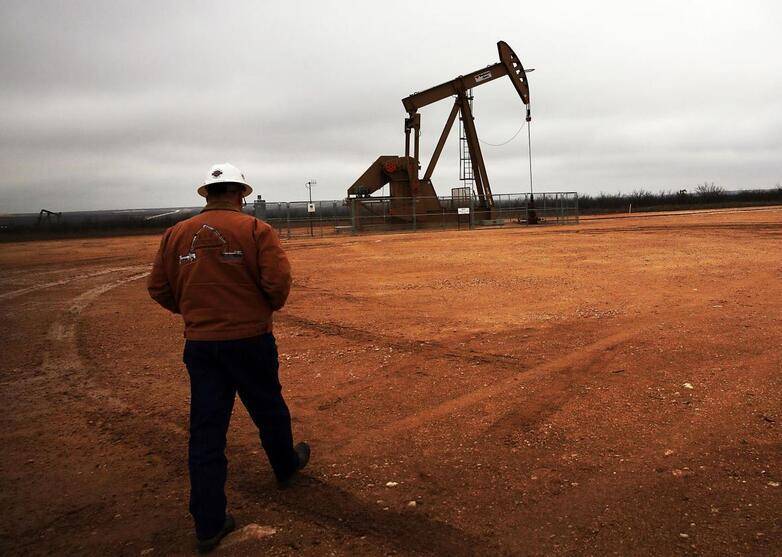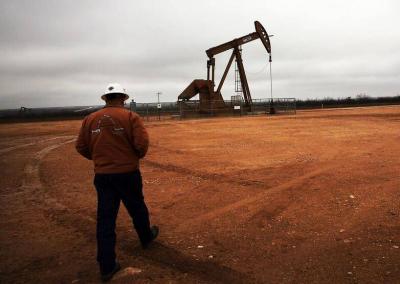In a new position that experts consider an attempt by Washington to address the dangerous negative repercussions of extensive sanctions on Russia on Western economies, particularly the American economy, U.S. Treasury Secretary Janet Yellen stated that a European ban on Russian oil would have devastating effects on Europe and the world as a whole. She urged caution when considering a complete European ban on importing Russian oil.
Yellen explained that such a European ban, if implemented, could raise global oil prices and, contrary to expectations, might have only a minimal negative impact on Russia, as it could earn higher prices for its reduced exports.
Commenting on this U.S. warning and whether it signifies a failure of Western sanctions policy against Moscow, economist and energy expert Amer Al-Shubaki stated in an interview with Sky News Arabia: "This represents somewhat of a shift in the U.S. stance when the Treasury Secretary declares the necessity of being cautious regarding a complete European embargo on Russian energy due to its catastrophic effects on European and global economies as a whole."
He added, "Here, the most significant issue resulting from the sanctions imposed by the West on Russia is the pressure of record inflation rates, which have reached unprecedented levels in the United States, marking the highest in about 45 years, and similarly in Europe. Additionally, there has been a decline in living standards in Britain and EU countries, alongside other signs of economic recession and decline in Western nations, all of which are troubling financial policymakers, including the American Secretary."
Al-Shubaki continued, "There is, of course, a serious European tendency to reduce reliance on all types of Russian energy, whether oil, gas, coal, or even nuclear fuel. For example, the EU has set a four-month timeline for phasing out coal, but the countries' reliance on coal for energy generation is marginal, hence its minimal impact on European economies. Furthermore, this won’t significantly affect the Russian economy, as coal only brings in 4 billion dollars to the Russian treasury."
The significant impact, he suggests, will begin with reducing Europe's dependence on Russian oil, which meets one-third of Europe's needs, and over half of Russia's oil exports go to Europe. Therefore, this reduction would have a very substantial impact globally, especially as economic conditions are volatile everywhere, and inflation rates are steadily increasing amidst the Russian-Ukrainian war, which has led to a decrease in global consumption of oil by approximately 1.4 million barrels per day due to the global economic downturn. The International Monetary Fund forecasts a decline in global economic growth by a full percentage point from 4.4 to nearly 3.5 percent, all of which impedes the fragile recovery of the global economy.
Now, it appears that Western countries are beginning to grasp the magnitude of the catastrophe, and the U.S. Secretary’s statements fall within this context, as Al-Shubaki explains, adding: "The U.S. government imposed comprehensive sanctions on Russian oil and gas because it would not be significantly harmed, given that the United States is the largest producer of oil and gas globally. However, the situation is completely different in Europe, where any comprehensive sanctions on Russian energy sources would result in painful and devastating consequences for European economies, especially large ones like Germany, which has the fourth-largest economy globally and the largest in Europe. Such sanctions would lead to recession, the loss of hundreds of thousands of jobs, and alarming increases in energy prices, which is why Berlin is seeking a gradual reduction of Russian energy supplies, having set a plan extending to 2024 to begin this process."
He further explains, "Thus, Washington's new stance seems more logical in warning against the consequences of a complete European ban on Russian energy, as these unprecedented sanctions have not influenced the Russian stance or compelled Moscow to back down, despite weeks passing since their imposition."
Al-Shubaki elaborated on the motivations behind Washington's position: "There is a U.S. need behind this shift, which is to leave the Russian economy with some breathing room so as not to be entirely suffocated. This way, the process of exhausting Russia in Ukraine continues on one hand, and on the other, it helps prevent Russian decision-makers from falling into despair, leading to rash actions like using weapons of mass destruction that could trigger a Third World War, under the pressure of tight and complete sanctions. According to this American mechanism, sanctions on Moscow are implemented gradually to avoid enforcing a total Western, specifically European, ban on Russian energy, vital for supplying hard currency to the Russian budget. Moreover, over half of the income of that budget comes from oil and gas."
Fear of Recession
For his part, Masoud Maalouf, former diplomat and expert in U.S. affairs, stated in an interview with Sky News Arabia: "Washington fears significant recession and economic contraction, as current inflation rates are the highest in about half a century. This explains the American call to Europe to refrain from moving towards a comprehensive ban on Russian energy sources, as this would also exacerbate the energy crisis within the United States even further."
The former diplomat elaborated on the background of Washington's warning to Europe regarding the risks of a total ban on energy supplies from Russia, saying: "Biden and the Democratic Party have a very slim majority in Congress, so any deterioration in the economic situation in the country will directly affect American voters’ inclinations in the upcoming midterm elections, which will take place in a few months, specifically on November 8. This could lead to a considerable loss for Biden’s party of its very narrow majority, turning it into a minority in Congress."
There is a skyrocketing increase in prices, especially energy prices in the U.S., Maalouf explained, continuing: "This negatively impacts various aspects of life and the economy across all sectors. Since American voters primarily vote based on economic considerations, Biden finds himself in a difficult and complex position, and we must not forget that his predecessor, Donald Trump, lost the last presidential election primarily due to the economic crisis resulting from the COVID-19 pandemic's repercussions."




